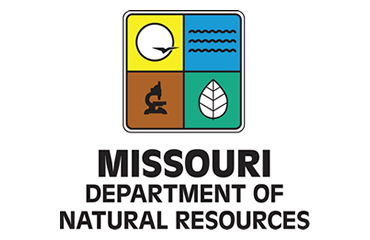In Missouri, where feral hog eradication efforts have increased this year through trapping, citizens are being asked to report feral hog sightings or damage as soon as possible.
While the Department of Conservation continues to work with legislators, community groups, agencies and landowners to increase awareness about feral hogs, it has learned hunting does not help as much as trapping in eradication efforts.
“Feral hogs destroy habitat, eat wildlife, compete with native animals for food, degrade our water quality and spread disease,” said Matt Bowyer, wildlife regional supervisor for the southeast region. “We’re asking Missourians to partner with the Department to ensure we reduce that destruction by reporting all sightings of feral hogs so we can work together to remove the threat.”
Reynolds County landowner Don Kory and his family have trapped more than 190 feral hogs on their property with the help of MDC and the USDA. Kory said landowners who haven’t yet experienced feral hogs on their property sometimes don’t understand the damage the animals cause. But after years of trapping and responding to the wreckage they leave behind, he knows the situation all too well.
“Many people think it would just be great fun to have wild boars on your property to hunt,” he said. “But if you are a landowner and enjoy your land the way it is, be happy if you never see a feral pig.”
If the Conservation Department had its way, landowners wouldn’t see feral hogs. Bowyer said to make progress in the feral hog fight, the Department needs people to stop hunting hogs and start reporting them.
The approach is based on evidence from states, such as Tennessee, Michigan and Kansas, which have experienced success by trapping hogs and discouraging people from hunting them.
“Feral hogs are highly adaptable and easily avoid trapping efforts when hunters encroach into their occupied area,” Bowyer explained. “We’re learning from other states that hog hunting actually increases the spread of populations by pushing hogs into new territories and making their movements less predictable.”
After the firsthand experience trapping hogs on his own land, Kory said he knows the damage hog hunting does to trapping efforts.
“Any disturbance from hunters causes the hogs to move miles away,” he said. “If you shoot one, the whole herd runs away to the neighbor’s property or somewhere else. Then trapping efforts are foiled.”
The hogs soon return, Kory added, but have grown trap-wary and are much more difficult to catch. Feral hogs are prolific; one sow can have up to 18 young in one year.
However, if individuals are afield during a prescribed hunting season and are in possession of the proper permits, such as an unfilled deer or fall turkey hunting permit, the incidental take of feral hogs is allowed.
Although the Department prefers all sightings of feral hogs on public and private land be reported, landowners have the right to protect their property from harm by shooting invasive hogs.
Bowyer asks anyone who is afield in Missouri and encounters a feral hog to call in a report to (573)522-4115 ext. 3296.
Those who witness illegal release of hogs should immediately contact the local conservation agent or report it to Operation Game Thief at (800)392-1111.




.png)